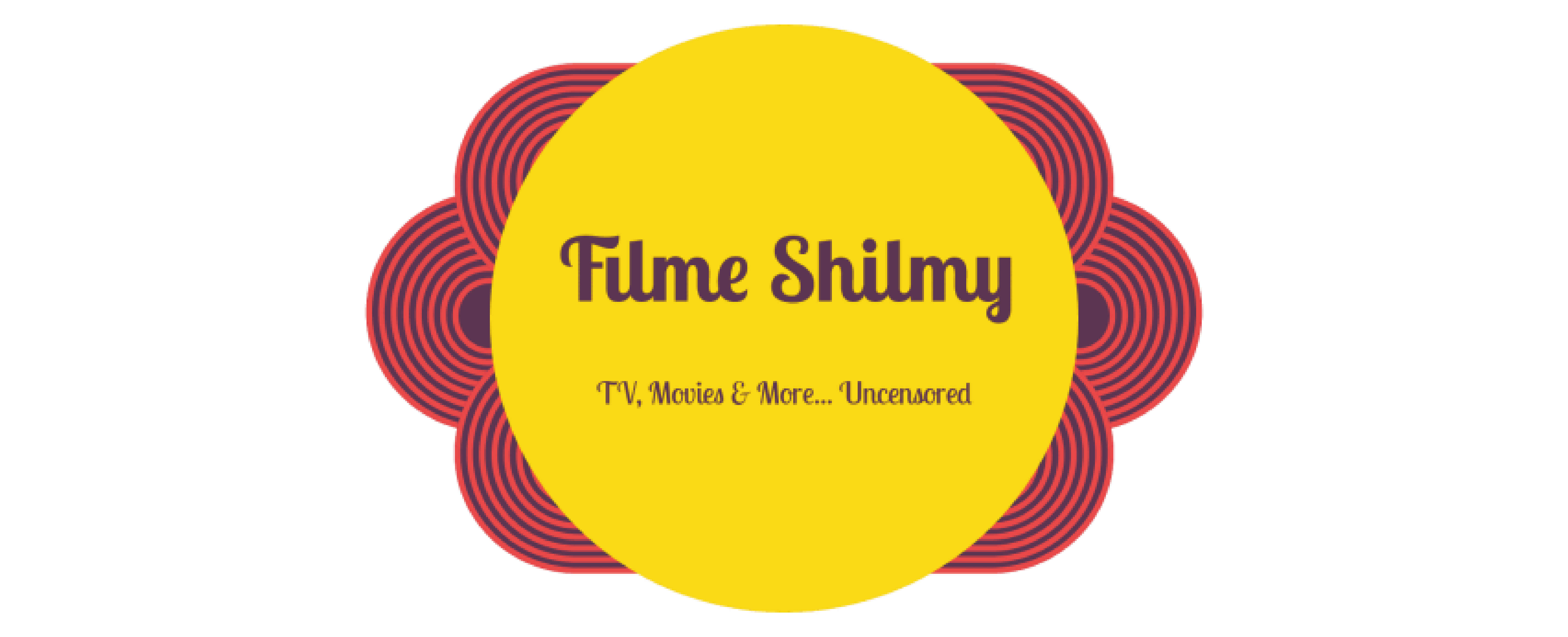Vishal Jethwa has blue eyes which are not only spellbinding but are also full of dreams and ambitions.
The 25-year-old, raised in a Gujarati family, made his acting debut with Bharat Ka Veer Putra: Maharana Pratap in which he played the parallel lead of King Akbar in the historical series.
Nailing the costume drama, he then starred as Bali in Sankatmochan Hanuman and Nasir in Peshwa Bajirao.
Subsequently, he found a bigger audience base when he played the character of Chota Packet, a terrorist in popular serial Diya Aur Baati Hum.
He followed it up with Thapki Pyaar Ki, where he was seen in the role of Prince Shekhawat.
The actor has won many awards for his roles, mostly as a child artiste. But now, his harrowing performance as a serial rapist in Mardaani 2 has gained him widespread applause.
In his first UK interview, Vishal exclusively talks to Filme Shilmy about unleashing his dark-side for Bollywood debut Mardaani 2.
*Please note that the original interview was conducted in Hindi and Gujarati, therefore these excerpts have been translated into English.*
Besides the critical acclaim and appreciation, what has changed for you post Mardaani 2?
After the film, the pressure has increased slightly because it all happened so fast as my first film has given me so much recognition.
Plus, the performance has been so well-received that I’m now aware of what the audiences will expect from me now.
So what the viewers will expect is completely different now. Hence, there’s a bit of pressure on what steps to take next.
The film has also made me responsible in terms of how I will work on the next project.
But when it comes to the atmosphere at home, it’s pretty much the same.
Rather than the ‘fame’ getting to my head, on the contrary, I feel more humbled.
To play such an antagonist, one has to delve into their inner darkness. What area did you explore and how did that help you?
Since my days on television, I would just act on the imagination that “a character would do this or that.”
Now, I’ve realised that there are some roles which one has to live through. I firstly understood Sunny’s psychology and applied various methods.
Then I came to know that any kind of darkness within me can be increased to essay such a character and this what the person heading my workshop suggested.
It was a very difficult process to unleash that hidden dark-side within me. I understood that aspect, as well as about myself as a person.
I used to stay in that character’s costume, as well as watching news clips/videos, so I could try and understand such perpetrators’ mindset.
Then I would also write everything about the character like about his lifestyle, work, for which I’d use the script as a reference point.
We used to rehearse a lot and to such an extent, that I would often perform on set without the script.
Undertaking such a sinister character can take a lot out of a person. After shooting, what did you to recover from Sunny and become Vishal again?
I went fully bald for the role. As the hair slowly came back, I somehow imagined myself of how I was prior to enacting the part.
Then, I started meditation. Since I am a huge fan of Gujarati folk music, therefore I would listen to that frequently.
I also would run, because such activities I would do before Mardaani 2 happened but had to sacrifice for the role, whilst preparing for it.
Intentionally, I would listen to Bhajans, read the Bhagavad Gita, meditate and also meet up with old friends.
I also began talking in Gujarati again because whilst I was preparing for this character, I tried to speak in his language. But slowly, I spoke in my language.
I was initially uncomfortable wearing my own clothes again because I was so accustomed to wearing Sunny’s outfit and adapting his body language.
Sometime later, collectively, that feeling of being ‘Vishal’ returned.
Rape is still very much rampant in the country. What do you think is the need of the hour to prevent this from happening?
I won’t say what changes in the laws should be implemented but I think that all decision on rape cases should be made more quickly so that other potential perpetrators will get afraid of such verdicts.
That fear needs to embedded. It’s not as if every criminal would be constantly chased by cops because it’s just not possible.
So I think that education since a young age is necessary. Parents need to pay close attention to the kids to ensure that they respect women.
The dynamics in a family, especially amongst male and female relatives is very important.
To balance the equation, in addition to the men being educated, but I also feel it would be helpful if women learnt self-defence.
Alertness should be spread amongst the people until this problem is solved entirely until there’s a point where every woman can live freely.
Given that there are so many newcomers this year, how does it feel to be entering Bollywood through a villainous role?
I have no issues whatsoever of being launched as a villain. I did not have any option of entering the film industry as a villain or as a hero.
I don’t have such a family background where someone launches me.
Where I’m from, even to get to Yash Raj Films’ gate is a big deal.
But luckily for me, I got a script on which I had to perform on.
Plus, the project I got to get involved with conveyed a noble message that too with Rani Mukerji.
Sunny was not solely a negative character. There are different variations to him.
If we think about it, the 6/7 shape-shifting personalities my character adapts, many of them display some positive attributes. I presented myself differently each time.
So those interested in filmmaking or cinema will be able to identify that I have variation as an actor.
Thus, they won’t be hesitant in offering me a positive role, should the opportunity arise.
Having made your Hindi film debut, what has been the biggest learning for you?
I have learnt that it is important to learn about the psychology of one’s character, which is something I didn’t do before.
Plus, the reason an actor to come on a set is not there to be pampered, we are there to do a job and play the part well.
So an actor has to be focused and work responsibly towards their objective. Therefore, I’ve learnt that it’s important to be faithful to one’s professionalism and craft as an actor.
After pack up, we have plenty of time to do everything else.
From my former experiences, I’ve noticed that people’s attitudes change when they come on sets, where they just sit next to the director and joke around.
That mannerism isn’t necessary. One shouldn’t a star on sets, but in the hearts of people.
Whilst working on a film, I also feel that patience is very necessary.
A lot of things happen throughout the process which compels one to think of giving up, but an actor must remain strong, patient and continue with their positivity.
You began your career from television. How has this transition from the small screen to the big been for you? Was it quite a big jump?
Honestly, I never dreamt that I would only be an actor in films.
I have only been passionate about my work as an actor. I’ve never really thought deeply about the mediums.
Even whilst working on the screen, I was only motivated by my work but having said that, it has definitely been life-changing because the film and role have been as such.
Going forward, the content of my work is what will matter the most.
I’m solely judging my journey as an actor, not through any other lens.
I definitely will endeavour to sustain myself in the film industry and push myself.
You’re also passionate about singing. What will you do to pursue this further?
I’m not a ‘singer’ per se, but I’ve received a lot of opportunities to sing at stage functions and events, so I do it here and there.
Should I ever receive the opportunity to do so, I would love to sing Gujarati folk music.
I also have a great relationship with some of the most renowned artists and even attend their events.
I’m very attached to this style of music and I would love to foray into this genre if the opportunity arises.
In addition to working in Bollywood. How do you hope to also cement your presence in Gujarati cinema, since that is on a revival?
Should I get an opportunity and everything in about that project pique my interest, then why no?
Definitely would love to work in Gujarati cinema as well as other regional movies.
More than anything, working in regional cinema will teach me a lot. I will get to expand my thought process and work with new people.
In addition, since it pushes me out of my comfort zone, I will essentially become stronger.
As you’ve played such a meaty and evil role during this early stage of your career, what style of roles are you interested in exploring now?
I would really like to do a historical character because that is a strength due to my basic knowledge due to that style of a role… I’ve done it before and it’s impactful.
Whilst it’s great to experiment with characters, I equally think that working on your strong areas as an actor can also prove to be a good decision during these initial stages of my career.
After I’ve worked on my strength and audiences start to appreciate my work further, then I can hopefully build on that.
Nonetheless, if a casting director or producer approaches me with a character which they are convinced I’ll be able to do, then I will definitely trust them.
Listen to the interview with Vishal Jethwa here:
Mardaani 2 is out in cinemas and Filme Shilmy wishes Vishal all the best for his career.










